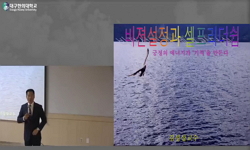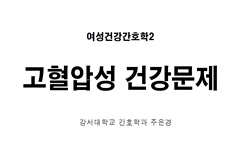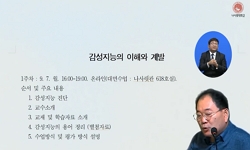목적 본 연구의 목적은 간호대학생의 비판적 사고성향, 공감능력과 셀프리더십의 관계를 파악하고, 셀프리더십에 미치는 영향요인을 규명하기 위함이다. 방법 연구 대상은 C도의 4개 대학...
http://chineseinput.net/에서 pinyin(병음)방식으로 중국어를 변환할 수 있습니다.
변환된 중국어를 복사하여 사용하시면 됩니다.
- 中文 을 입력하시려면 zhongwen을 입력하시고 space를누르시면됩니다.
- 北京 을 입력하시려면 beijing을 입력하시고 space를 누르시면 됩니다.

간호대학생의 비판적 사고성향과 공감능력이 셀프리더십에 미치는 영향 = Influence of Critical Thinking Disposition and Empathy Ability on Self-Leadership of Nursing Students
한글로보기https://www.riss.kr/link?id=A108459243
- 저자
- 발행기관
- 학술지명
- 권호사항
-
발행연도
2023
-
작성언어
-
- 주제어
-
KDC
373
-
등재정보
KCI등재
-
자료형태
학술저널
-
수록면
115-127(13쪽)
- DOI식별코드
- 제공처
-
0
상세조회 -
0
다운로드
부가정보
국문 초록 (Abstract)
목적 본 연구의 목적은 간호대학생의 비판적 사고성향, 공감능력과 셀프리더십의 관계를 파악하고, 셀프리더십에 미치는 영향요인을 규명하기 위함이다.
방법 연구 대상은 C도의 4개 대학교 3, 4학년에 재학 중인 간호대학생이었으며, 본 연구에 자발적으로 동의한 대상자들에게 구조화된 설문지를 이용하여 자료수집을 하였다. 자료분석은 대상자의 일반적 특성에 따른 변수 간 차이는 t-test, ANOVA로 분석하였고, 변수 간 상관관계는 Pearson’s Correlation Coefficient로 분석하였으며, 대상자의 셀프리더십에 미치는 영향요인 규명은 다중회귀분석 방법을 이용하였다.
결과 연구결과로는 대상자의 일반적 특성에 따른 비판적 사고성향, 공감능력과 셀프리더십의 차이에서 성별, 연령, 임상실습경험, 종교, 간호학과 진학 동기, 전공에 대한 만족 정도, 의사소통능력에 대한 만족 정도, 대인관계 만족 정도, 취업 희망 분야에서 유의한 차이를 보였으나, 학년, 동아리 활동에서는 통계적으로 유의한 차이가 없었다. 셀프리더십과 비판적 사고성향, 공감능력 간에는 모두 양의 상관관계가 있는 것으로 나타났다. 간호대학생의 셀프리더십에 미치는 영향요인을 확인한 결과, 가장 큰 영향을 미치는 요인으로는 비판적 사고성향이었으며, 그 다음으로는 공감능력, 전공에 대한 만족정도 순으로 나타났다. 모형의 설명력은 48.7%였다.
결론 본 연구는 셀프리더십의 영향요인으로 비판적 사고성향뿐만 아니라, 공감능력이라는 인문학적 소양 요인의 중요성을 입증하였다는 점에서 의의가 있으며, 이러한 결과를 바탕으로 학부과정에서는 교과 및 비교과 프로그램을 통하여 간호대학생의 창의성을 겸비한 셀프리더십을 향상시킬 수 있는 교육적 접근이 필요하고, 임상현장에서는 지속적인 셀프리더십의 개발과 함양을 위한 행정적·재정적 지원이 필요할 것이다. 그러나 이보다 앞서 간호대학생이 셀프리더십에 대한 필요성을 인식하는 과정이 선행돼야 할 것이다.
다국어 초록 (Multilingual Abstract)
Objectives The purpose of this study is to understand the relationship between nursing students’ critical thinking disposition, empathy ability and self-leadership, and to determine the effect of nursing students' critical thinking disposition and ...
Objectives The purpose of this study is to understand the relationship between nursing students’ critical thinking disposition, empathy ability and self-leadership, and to determine the effect of nursing students' critical thinking disposition and empathy ability to self-leadership.
Methods The subjects of the study were nursing students enrolled in the 3rd and 4th grades of four universities in C province. Data analysis was performed using descriptive statistics, t-test, ANOVA, Pearson correlation coefficients, and multiple linear regression analysis using the IBM SPSS 20.0 program.
Results The findings showed differences in the degree of gender, age, clinical experience, religion, motive of entering nursing department, satisfaction of majors, satisfaction of communication skills, satisfaction of personal relationships and hopeful employment fields in the difference between the degree of critical thinking disposition, empathy ability and self-leadership of nursing students according to the general characteristics of the subject, but there was no difference in grade level and club activities. It was found that there was a positive correlation between self-leadership of nursing students, critical thinking disposition and empathy ability. As the result, the most influential factor to self-leadership of nursing student was critical thinking disposition followed by empathy ability, satisfaction of majors. The explanatory power of the model was 48.7%.
Conclusions This study is significant in that it proved the importance of not only critical thinking disposition but also the humanities literacy factor such as empathy ability as an influencing factor of self-leadership. An educational approach that can improve self-leadership combined with creativity is required, and administrative and financial support for the continuous development and cultivation of self-leadership in the clinical field will be required. However, the process of recognizing the need for self-leadership by nursing students should be preceded.
목차 (Table of Contents)
- Ⅰ. 서론
- Ⅱ. 연구 방법
- Ⅲ. 연구결과
- Ⅳ. 논의
- Ⅴ. 결론 및 제언
- Ⅰ. 서론
- Ⅱ. 연구 방법
- Ⅲ. 연구결과
- Ⅳ. 논의
- Ⅴ. 결론 및 제언
- 참고문헌
동일학술지(권/호) 다른 논문
-
- 학습자중심교과교육학회
- 박형규(Hyung Kyu Park)
- 2023
- KCI등재
-
- 학습자중심교과교육학회
- 최지연(Jiyoun Choi Jiyoun)
- 2023
- KCI등재
-
의과대학생이 인식하는 표절 관련 행위에 대한 중요도-실행도 분석
- 학습자중심교과교육학회
- 유효현(Hyo Hyun Yoo)
- 2023
- KCI등재
-
관심기반수용모형(CBAM)에 의한 유아교사의 메이커교육 관심도와 실행수준 분석
- 학습자중심교과교육학회
- 조신애(shin-ae Jo)
- 2023
- KCI등재




 스콜라
스콜라






